Round Table with Recognized Scientists
18:00h. CEST
Round Table with Recognized Scientists
Topic:
“The challenges that young scientists will face in our world”
Confirmed Invited participants:
Adolfo García-Sastre
Professor of Medicine and Microbiology
and co-director of the Global Health & Emerging Pathogens Institute
at the Icahn School of Medicine at Mount Sinai in New York City.
Laura Lechuga
Full Professor at CSIC.
Group Leader at the Catalan Institute of Nanoscience and Nanotechnology (ICN2)
and at Networking Biomedical Research Center (CIBER-BBN), Barcelona.
Samuel Sánchez Ordoñez
ICREA Research Professor, Senior Group Leader and Deputy Director
at the Institute for Bioengineering of Catalonia (IBEC), Barcelona.
Honorary visiting professor at HIT in Shenzhen, China.
Susana Marcos
David R. Williams Director of Center for Visual Science;
Nicholas George Professor of Optics, The Institute of Optics;
Professor of Ophthalmology, Flaum Eye Institute. University of Rochester, New York
Ángeles G. Borrego
Vice-president for international affairs
at Spanish National Research Council (CSIC).
Hot topic discussions about climate change, artificial intelligence, pandemics, pseudosciences, etc.
Estimated duration: 1 hour 30 minutes.
Presented by Fran López Galán
Salamanca Congress Palace
and online live streaming at eucys2021.com
Event open to all public, but pre-registration is required for on-site attendance
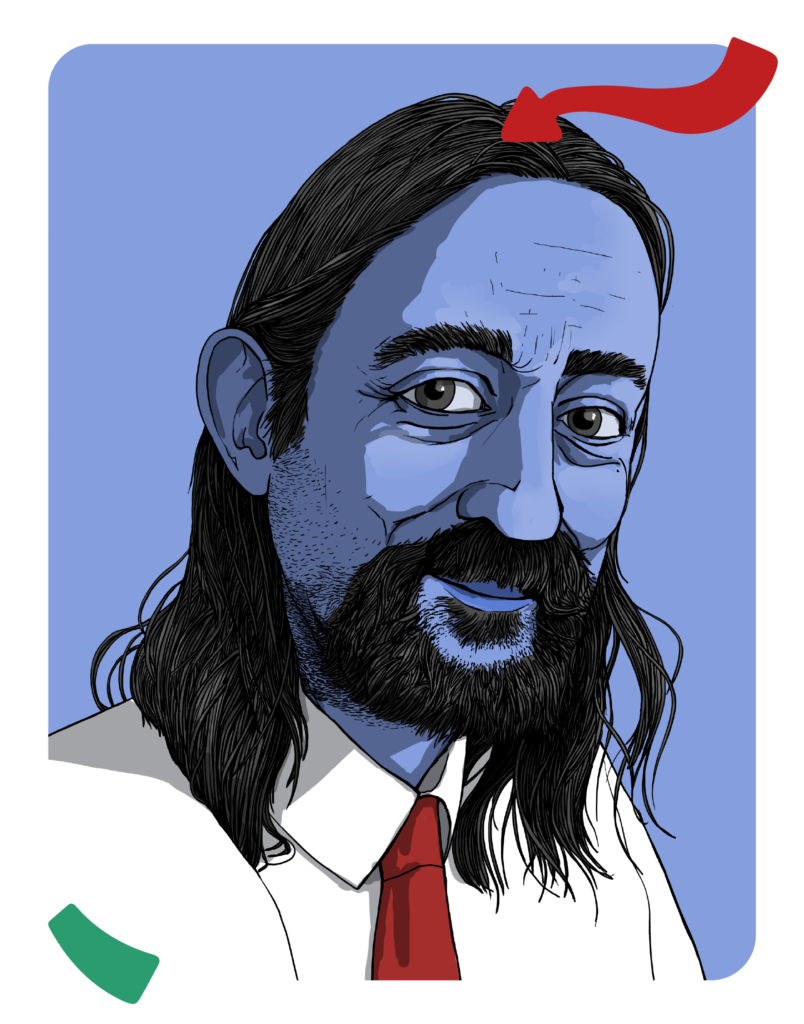
Adolfo García-Sastre
Professor of Medicine and Microbiology and co-director of the Global Health & Emerging Pathogens Institute at the Icahn School of Medicine at Mount Sinai in New York City.
Virologist in the Emerging Pathogens area at Mount Sinai Hospital in New York, investigates the development of antivirals and vaccines against COVID-19.
Dr. García-Sastre is Professor in the Departments of Microbiology and Medicine and in the Tisch Cancer Center at Icahn School of Medicine Mount Sinai (ISMMS) in New York. He is also Director of the Global Health and Emerging Pathogens Institute at ISMMS, and Principal Investigator for the Center for Research on Influenza Pathogenesis and Transmission (CRIPT), a NIAID Center of Excellence for Influenza Research and Response (CEIRR). For the past 30 years, his research interest has been focused on the molecular biology, virus-host interactions, innate immunity and pathogenesis of influenza viruses and several other RNA viruses, as well as on the development of new vaccines and antivirals. He has more than 600 peer-reviewed publications in these areas of research. He has been President of the International Society for Vaccines in 2014-2015. He is Editor for the scientific journals PLoS Pathogens and PNAS , Editor-in-Chief for Current Opinion in Virology, and has been editor for Journal of Experimental Medicine, Journal of Virology and Virus Research. In 2017, he has been elected a fellow of the Royal Academy of Pharmacy in Spain. In 2019, he was recognized with a Honorary Doctor Degree from the University of Burgos, Spain. Also in 2019, he was elected a member of the US National Academy of Sciences and of the US National Academy of Inventors.
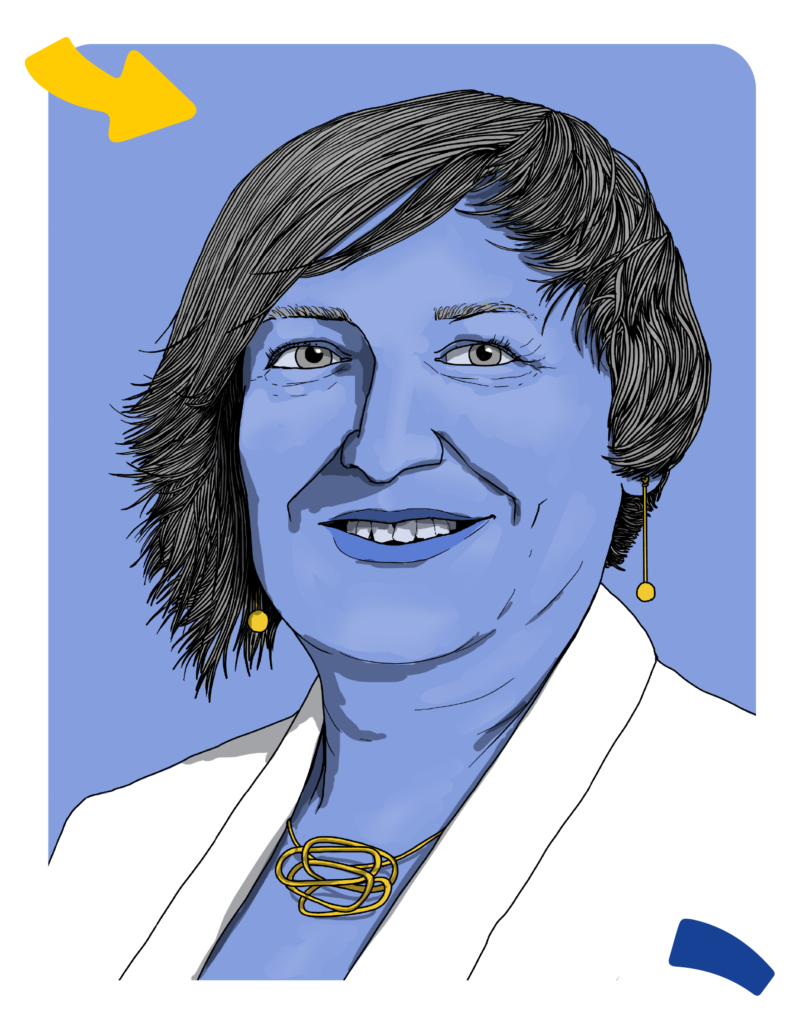
Laura Lechuga
Full Professor at CSIC. Group Leader at the Catalan Institute of Nanoscience and Nanotechnology (ICN2) and at Networking Biomedical Research Center (CIBER-BBN), Barcelona.
Innovator and pioneeer in the development of nanobiosensors for the detection of diseases, during the pandemic focused her efforts on developing a simple, low-cost and fast optical biosensor to detect COVID-19.
Prof. Laura M. Lechuga is Full Professor of the Spanish National Research Council (CSIC) and Head of the Nanobiosensors and Bioanalytical Applications Group at the Catalan Institute of Nanoscience and Nanotechnology (ICN2) in Barcelona (Spain) and at the Networking Biomedical Research Center (CIBER-BBN). The principal focus of her research is the development of novel nanobiosensor devices based on nanoplasmonics and silicon-based photonics principles for point-of-care diagnostics. Prof. Lechuga has been at the forefront of the Photonic Biosensor area during more than eighteen years, making key contributions and opening new horizons in this field. Her research activities have encompassed from fundamental research to the technological operation of complete sensing platforms, including the technological transfer into products of social applicability. Her Group is considered as a world reference in this field.
She has published over 260 articles, book chapters and proceedings, has 8 families of patents, and has presented her work worldwide in more than 365 invited talks. She has co-founded two spin-offs companies. The quality of her research has been recognised by prestigious prizes and awards, as the Physics, Innovation and Technology Prize from the Spanish Royal Physics Society (RSEF) and BBVA Foundation (2016), the Ada Byron Prize (2020), the King Jaume I award in New Technologies and the Spanish National Research Prize in Tech Transfer in 2020 (the two last ones are the most prestigious research prizes in Spain), and the Burdinola Research award in 2021.
In 2020, during the COVID-19 pandemic, she has been included in the Expert Scientific Panel advising the Ministry of Science and Innovation and the Spanish Government in the management of the pandemic.
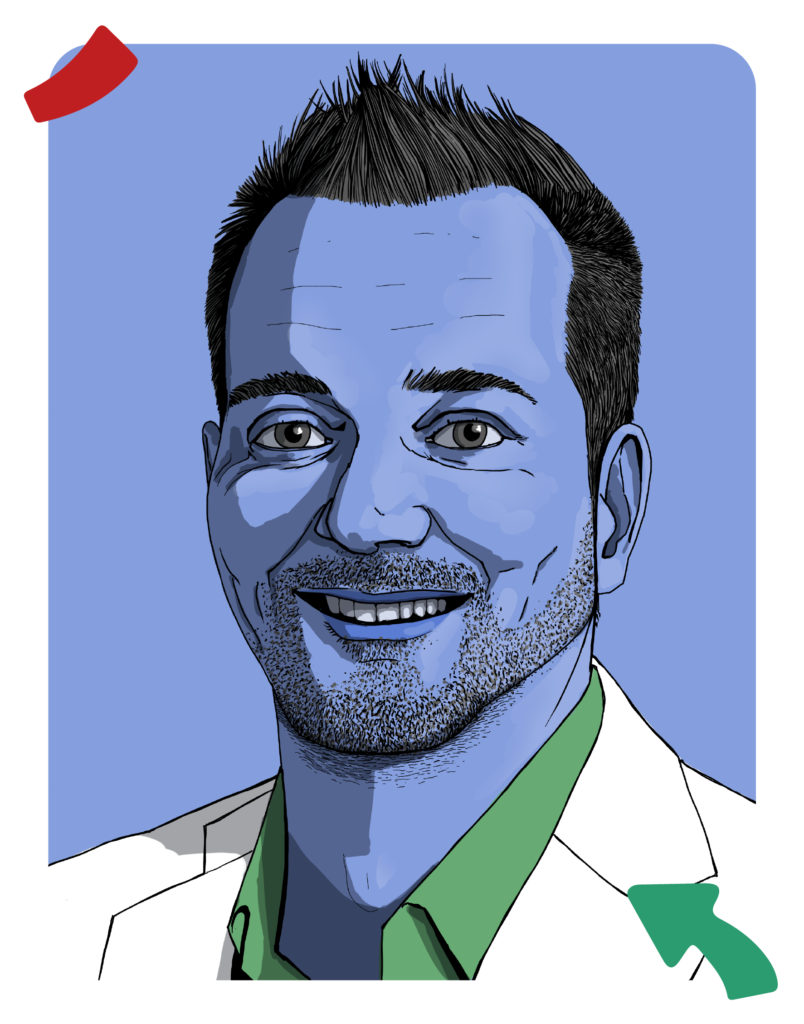
Samuel Sánchez Ordoñez
ICREA Research Professor, Senior Group Leader and Deputy Director at the Institute for Bioengineering of Catalonia (IBEC), Barcelona. Honorary visiting professor at HIT in Shenzhen, China
Top researcher in nanoscience, his research focuses on the design of self-propelled nanobots that, for example, can navigate within the human body to transport drugs and treat tumors and other diseases.
Samuel is ICREA Research Professor, Senior Group Leader and Deputy Director at the Institute for Bioengineering of Catalonia (IBEC) Also, he is honorary visiting professor at HIT in Shenzhen, China. Before that, he worked at the Max Planck Institute for Intelligent Systems in Stuttgart, at the Institute for Integrative Nano-sciences at IFW Dresden, Germany, and at MANA-NIMS in Japan. He received several awards and recognitions such as the MIT TR35 as Top Innovator Under 35 in the Spanish edition in 2014, Guinness World Records in 2010 and 2017, the Princess of Girona Scientific Research Award 2015 and the National Research Award for Young Talent 2016 by the Catalan Research Foundation. He received the ERC-Starting Grant in 2013, two ERC-Proof-of-concept in 2016 and 2017 and the ERC-Consolidator grant 2019 Besides extensive public funding, his group has cooperation agreements with Private Foundations and also Private companies. He has published about 150 papers with h-index of 59 and he has filed 7 patents.
Samuel is leader of the “Smart Nano-Bio-Devices” group, working in the multidisciplinary field of Nanosciences with interest in developing hybrid robotics systems across different length-scales, from the nano- to the macroscale. Currently, the main research lines in his group are: 1. Nanofabrication of nanobots as smart drug delivery systems for biomedical applications such as bladder cancer treatment; 2. Study of collective phenomena of active nanosystems; 3. Development of personalized medicine based on multifunctional biocompatible nanobots for patient-derived tumors and other diseases; 4. Use of medical imaging tools to track self-propelled nanobots in vivo; and 5. 3D Printing living systems based on skeletal muscle tissues for tissue engineering, drug screening and living soft robotics.
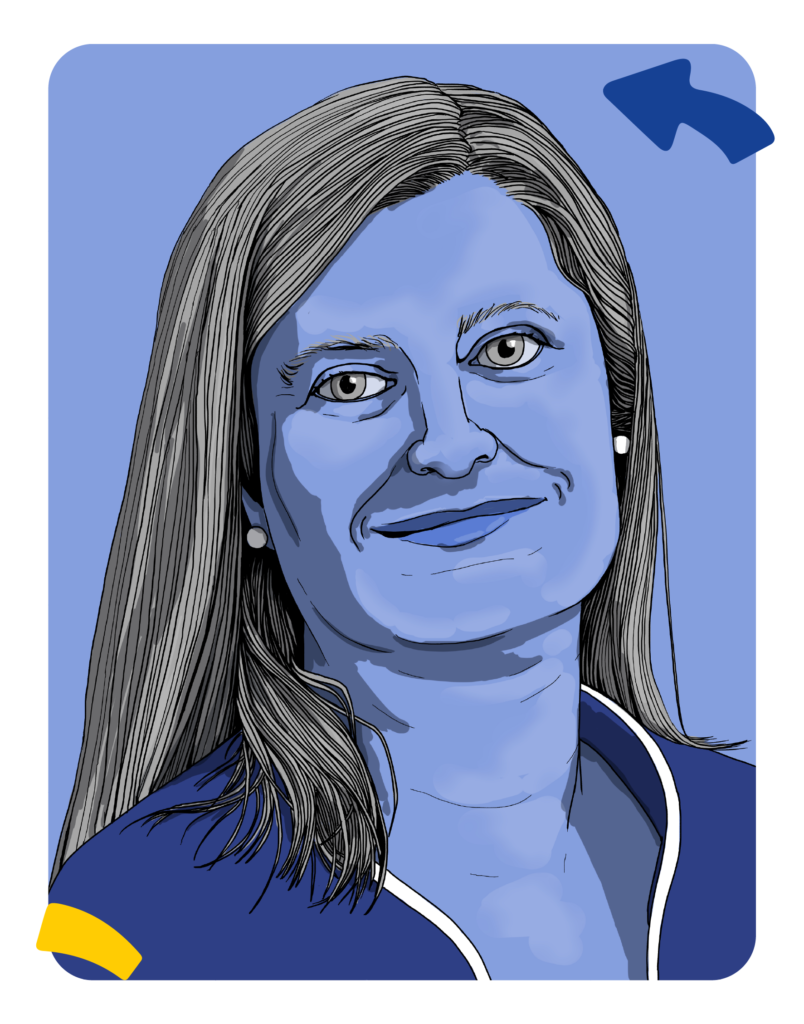
Susana Marcos
David R. Williams Director of Center for Visual Science
Nicholas George Professor of Optics, The Institute of Optics Professor of Ophthalmology, Flaum Eye Institute, University of Rochester, New York.
Physicist pioneer in visual optics, recently appointed director of the Center for Visual Sciences in Rochester, an international reference center in vision research, with experts in optics, neuroscience, bioengineering and ophthalmology.
Susana Marcos is an acclaimed researcher in the field of visual optics and ocular imaging. She is a pioneer in the development of new techniques for the evaluation of the eye, including retinal imaging instruments, aberrometers, adaptive optics, anterior segment imaging of the eye and intraocular lens designs. Dr. Marcos earned her Bachelor and PhD degrees in Physics at the University of Salamanca, Spain. Before coming to Rochester, she has been Director of the Institute of Optics, CSIC (2008-2012), Spain, and Professor of Research at CSIC, where she founded the Visual Optics and Biophotonics Lab in 2000. In July 2021 she was appointed Director of CVS, with dual affiliation in Optics and in Ophthalmology at the University of Rochester. She holds a “Viculated Doctorship” at the Institute of Optics, where she supervises a multidisciplinary, international team of >25 members. Her research programs at the University of Rochester address emerging technologies for myopia, presbyopia and cataract corrections.
Prof. Marcos has published more than 180 highly cited research articles, and is the inventor of 20 patent families (14 licensed to the industry). Her research has been key in spin-off companies Plenoptika and 2EyesVision, which she co-funded in 2015. Recognitions to her work include the Adolph Lomb Medal (Optical Society), ICO Prize (International Commission for Optics), Doctor Honoris Causa by the Ukraine Academy of Science and Technology, OSA Fellow, EOS Fellow, ARVO Fellow, Alcon Research Institute Award, Borish Scholar Award (Indiana University), Physics, Innovation and Technology Award (Royal Spanish Society of Physics-BBVA Foundation), Honor Plate of the Spanish Association of Scientists, Julio Pelaez Award to Women Engineers (Tatiana Perez de Guzman el Bueno Foundation), Ramón y Cajal Medal (Royal Academy of Sciences), King Jaime I Award, and National Research Award in Engineering (Government of Spain), the two latter awarded by the King of Spain.
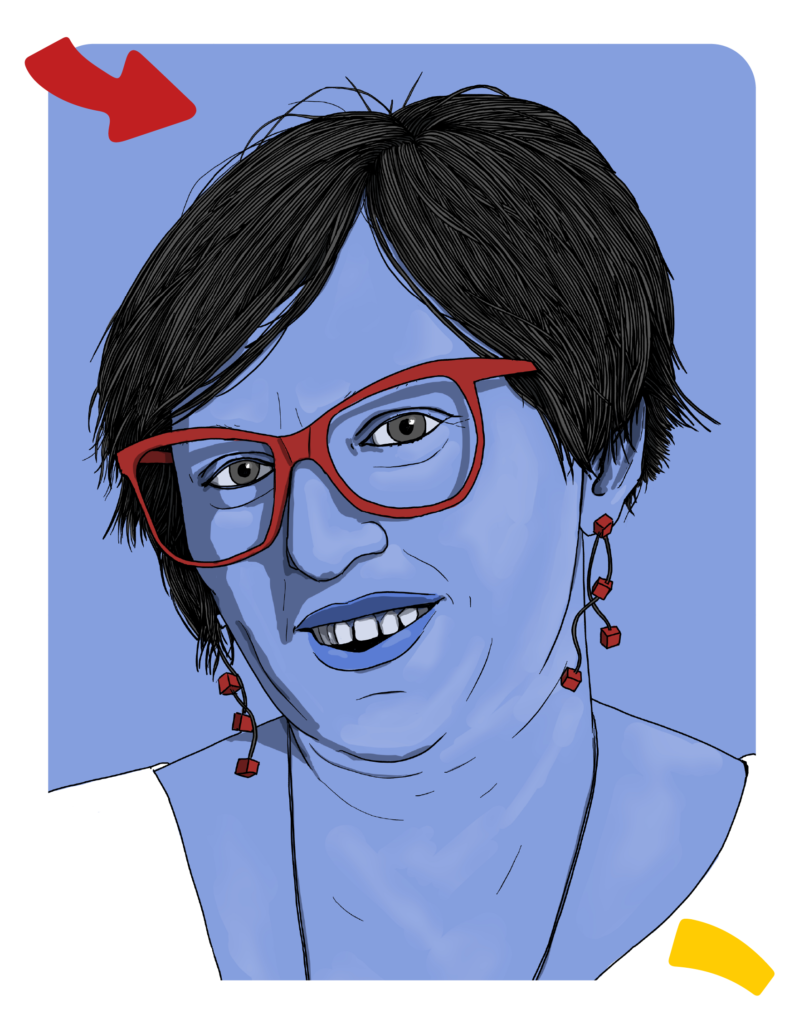
Ángeles G. Borrego
Vice-president for international affairs at Spanish National Research Council (CSIC).
Geologist, fighting against climate change with several projects around the world, worked in the clean utilization of organic components in industrial processes at the Institute for Carbon Science and Technology (INCAR-CSIC), Oviedo.
Angeles G. Borrego is the vice-president for international affairs at Spanish National Research Council (CSIC) since May 2021. Previously she was CSIC representative at regional level in Asturias and senior researcher at the Institute for Carbon Science and Technology (INCAR-CSIC) in Oviedo, Spain. She got a PhD in Geology from the University of Oviedo in Spain in 1992 and was awarded with a Marie Curie postdoctoral fellowship to work at the Lehrstuhl für Geologie, Geochemie und Lagerstätten des Erdöls und der Kohle (RWTH Aachen), Germany and also back in Oviedo recognized as a MSCA success story. Her research has focused on the study of solid fossil fuels with special emphasis in the relationships between the organic components and their performance in various industrial processes, including clean utilization. More recently peat as a record for climate change based on geochemical proxies has been her research focus. Angeles presides the ICCP (International Committee for Coal and Organic Petrology), and was awarded in 2008 with the Organic Petrology Award. She has been Spanish representative for the research programs of Energy in the EU (2 years) and is chairing the TGK2 group for monitoring projects on coal utilization from the RFCS (Research Funds for Coals and Steel) in the framework of the Green Deal. Students supervising and training programs in National and International Universities (Brazil, Colombia, Mexico) and companies are also relevant aspects of her work.
